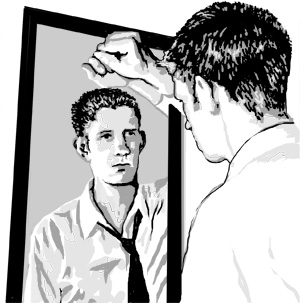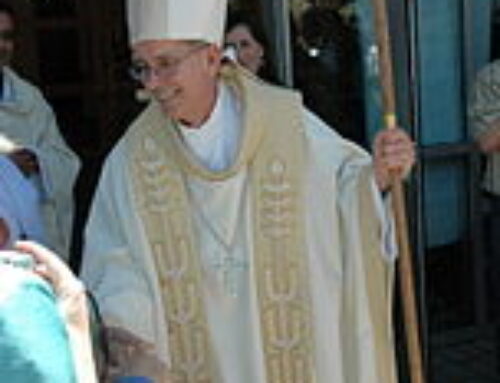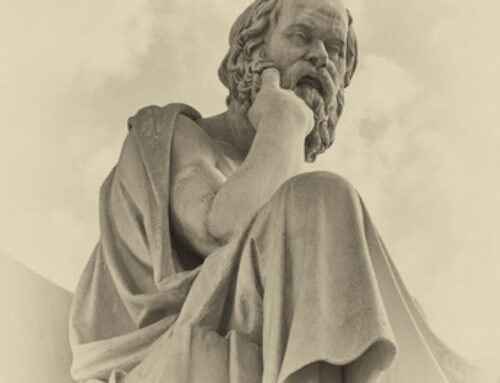 We’ve all heard enough ethnic jokes to know that they can be hurtful because they are usually based on stereotypes—that is, on overgeneralized, often derogatory, and even scurrilous characterizations of entire groups of people. But in the year 2000 a scientific procedure was introduced that has led to a very different kind of ethnic joke—one that begins by shocking most people and then making them laugh, not at any ethnic group but instead at the very concept of ethnicity!
We’ve all heard enough ethnic jokes to know that they can be hurtful because they are usually based on stereotypes—that is, on overgeneralized, often derogatory, and even scurrilous characterizations of entire groups of people. But in the year 2000 a scientific procedure was introduced that has led to a very different kind of ethnic joke—one that begins by shocking most people and then making them laugh, not at any ethnic group but instead at the very concept of ethnicity!
The scientific procedure is known as the “Genealogical DNA Test.” A number of companies offer it and the process is the same, though the data sets and formulae differ by company. You simply answer a few questions, spit into a vial, and mail it. In a couple of months you receive your ethnicity breakdown.
As an example of what one might receive, let me share what I received. But let me begin by explaining what I knew and what I assumed before I spit into the vial. My mother’s father was a Ryan (Irish); her mother was a McLeod (Scottish). My father’s father was Italian, as was his mother. I have always considered myself Italian and Irish/Scottish.
My dominant ethnicity, I assumed, was Italian because that ethnicity was doubled on my father’s side. I identified more with the Italian side for that and several other reasons. One was that I am inclined to favor the underdog, and in the place and time I grew up, Italians were often considered inferior to the Irish. Another reason was that my father’s family was warmer and more welcoming to others than my mother’s family was. Yet another was that, though both sides drank alcohol, the purpose of drinking it on the Irish side seemed to be for the sake of drinking, but on the Italian side for washing down food. Lots of food. A third was that there were more good cooks on the Italian side and I always loved eating much more than drinking. (I am not dealing in stereotypes here, just stating my personal experience.)
Now for my DNA ethnicity results: 56% Ireland and Scotland, 29% Italy, 11% France, 2 % Greece and the Balkans, 2% Other Regions.
Not only am I not mainly Italian, I am less than a third Italian and more than half Irish/Scottish. Moreover I am, to my great surprise, part French, part Greek, and part Swedish!
Other people I know have had a similar or even more dramatic shock. One friend told me that despite having German parents and grandparents, his first DNA report revealed he was only 35% German, and a follow-up report (with more data) lowered that percentage further. Another who thought he was three-quarters Italian and one-quarter Irish learned that he is 81% Irish/Scottish/English, 24% Iberian, 7% Italian, 11% Sephardic Jewish, and 7% West Asian. (He is planning to cancel his Italian-American Club membership before they throw him out.) A third, who had always thought he was partly Native American and mostly European Christian, learned that he is not Native American at all but 60% Jewish!
When I first looked into the mirror after learning of my ethnicity, I couldn’t help thinking that I was seeing a different person. That, of course, was foolish. My genes were the same as they had been since birth, so I was exactly the same person as before. The only change was in my understanding of my ethnic composition.
As I thought further about my discovery, I was relieved that I am not prejudiced toward any of the ethnic groups I am a part of. Then I began to wonder how people who really hated a certain group might feel if they discovered that they actually belonged to that group.
For example, how would a man who hated Hispanics feel if he learned he was Hispanic? Would he abruptly shift from hating to loving Hispanics or instead deny the newly discovered reality and go on hating them? Would he, perhaps, even begin to hate himself?
And how would a woman who had been brought up to regard Jews, Poles, and Italians as inferior people react if she found she was all three? Probably not by jumping off a tall building. But her self-esteem could very well plummet. The same would surely be the case with someone in a caste-based society who learned that he was not a member of the highest caste, as he had always thought, but instead of the lowest, most despised class.
More broadly, think of what would happen if whole groups of people discovered that they were closely related ethnically to groups they had been at war with for centuries. For example, the Israelis and the Palestinians. The Somalis and the Kenyans. The Serbs and the Croatians. The Irish and the British. The Hutus and the Tutsis. Would they stopping killing each other and celebrate their common genetic heritage? Or would they choose instead to continue the carnage indefinitely to remain loyal to their ancestors?
I titled this essay “The Ultimate Ethnic Joke.” The joke, of course, is on all of humanity. I call it ultimate because it is found at all times and in all places and among all ethnic groups. By now it is almost a part of our very nature. The humor is that in every age, as our ancestors were diligently engaged in sorting humankind into good us and bad them, a number of their offspring were thwarting the effort by quietly and lovingly mixing the gene pool. The result, as Genealogical DNA Testing confirms, is that the line between us and them is now so blurred that it is difficult to hate others without inadvertently hating ourselves.
Perhaps the more we learn about gene melding, the more successful we will be in overcoming our hatred of others and following Jesus’ command to “love one another as I have loved you.”
Copyright © 2020 by Vincent Ryan Ruggiero. All rights reserved


